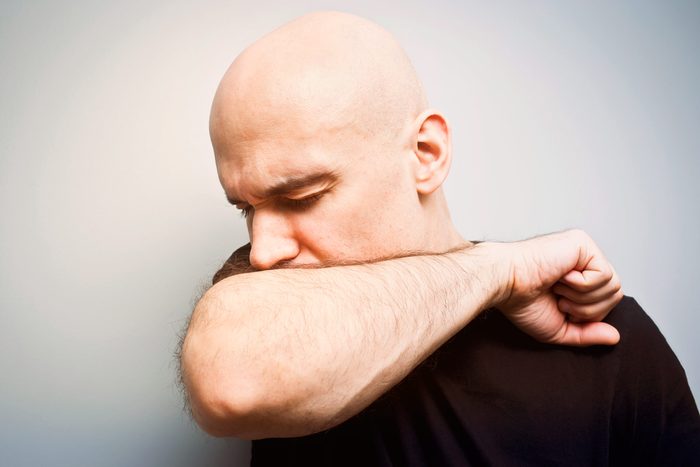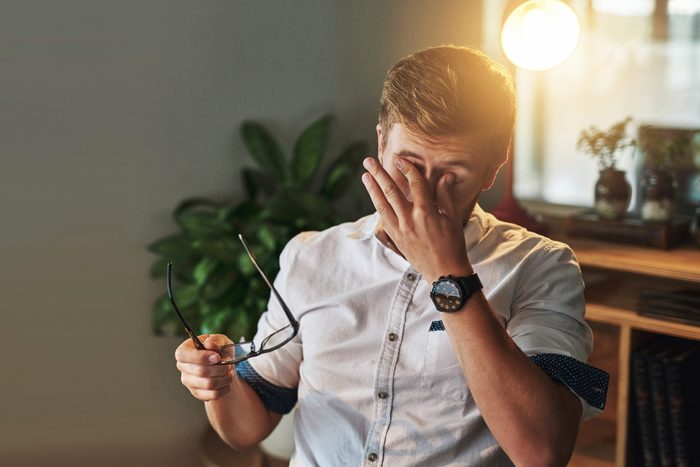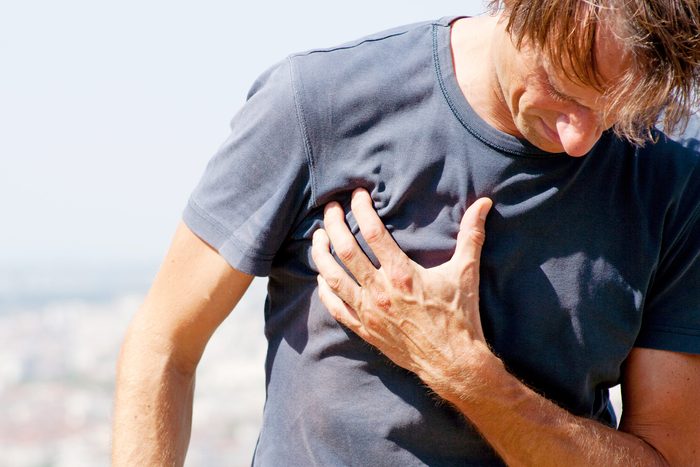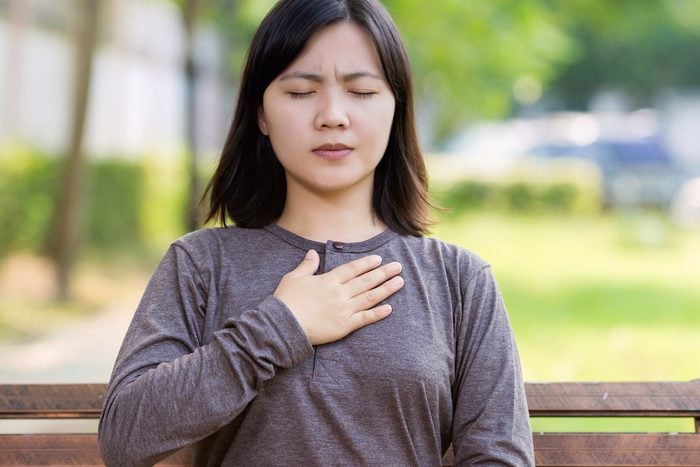
You’re in your forties
The peak years for the onset of asthma in adulthood are between 45 and 50, says Richard F. Lockey, MD, director of the Division of Allergy & Immunology at University of South Florida College of Medicine. Most at risk of developing symptoms of asthma are those who have allergies or those who suffered from the disorder as kids but thought they “outgrew” it. Many asthma symptoms start after an infection. “You get a cold and suddenly you have asthma,” Dr. Lockey says.

You have a cough that doesn’t go away
Most of us associate a cough with a cold or bronchitis, but it can also signal asthma. “Your cough becomes worse after you laugh or lie down—and it comes from the chest, not the throat,” says Dr. Lockey. In one type of asthma, known as cough-variant asthma, the only symptom is a chronic cough. The best treatment for people with cough-variant asthma tends to be prescription medication, as over-the-counter varieties aren’t strong enough to offer relief. If these home remedies for coughs don’t get you better, have a doctor check it out, and try eating these 12 foods that may help you breathe better.

You sigh, yawn, or take deep breaths a lot
These behaviors don’t necessarily mean you’re suffering from world-weariness—they may, in fact, be symptoms of asthma, explains Dr. Lockey. All three ways of breathing involve getting more oxygen into your body and more carbon dioxide out—an unconscious effort to remedy the imbalances caused by constricted airways. Keep in mind that sighing, yawning and taking deep breaths can also be signs of anxiety. Learn how to keep asthma flare-ups under control.

You’re often tired
Wheezing and coughing through the night? If it’s interrupting your sleep, it can cause serious issues. After a bad night’s sleep, you’re not only low on physical energy, you’re also less mentally sharp. Chronic sleeplessness has been linked to increased risk of heart disease and diabetes, and certified sleep science coach Chris Brantner, the founder of the sleep research site SleepZoo, says it may make a case of asthma become more severe. Fortunately, when asthma symptoms are controlled, sleep problems tend to go away. Learn if an air purifier for asthma can give you a sounder sleep.

Your chest feels tight
After running a 10K race, Anne-Marie Brooks had trouble breathing and felt a tightness in her chest. Her husband, concerned that the exertion might have brought on a heart attack, took her to the emergency room. There, the 48-year-old teacher learned she wasn’t suffering from cardiac trouble but from something she thought she’d left behind 36 years earlier—asthma. “It never dawned on me that I might be having an asthma attack,” Brooks says. When this happens you may experience chest tightness, shortness of breath and a cough, explains Yelena Kopyltsova, MD, of ENTA and Allergy Associates. People often mistake this tightness for heart attacks. Your physician or an ER can figure out what’s going on and provide appropriate treatment. Don’t miss these essential tips for preventing an asthma attack.

You’re taking in rapid, shallow breaths
For some people, slow and rapid breathing can be one of the symptoms of asthma. At rest, the normal breathing rate for adults is 12 to 20 breaths per minute, according to Cleveland Clinic. If you’re breathing faster than this, at about 30 times per minute (every two seconds), you may be experiencing hyperventilation. Find out how to spot the symptoms of exercise-induced asthma.
